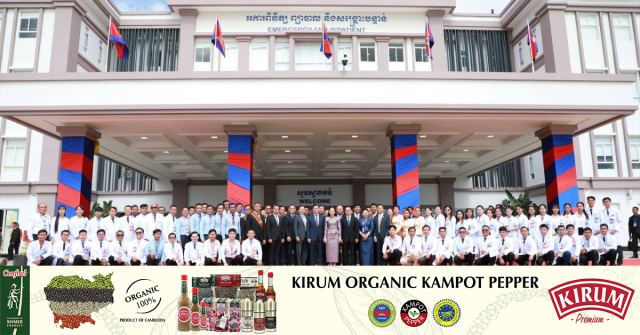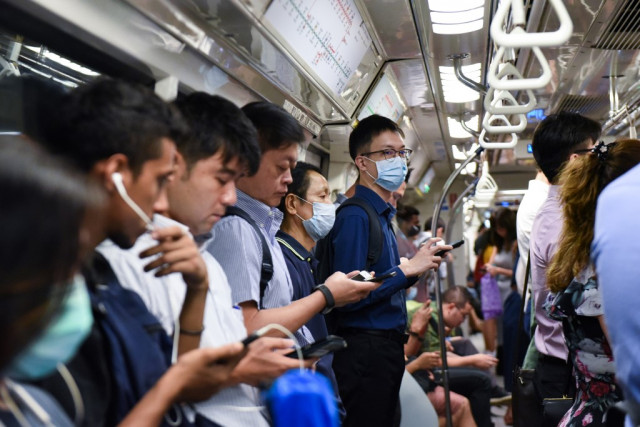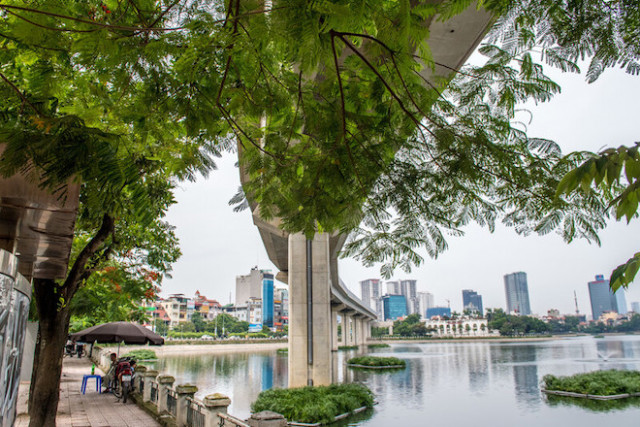Cambodia’s Biggest Hospital Inaugurated

- By Teng Yalirozy
- October 24, 2023 1:30 PM
PHNOM PENH – Techo Santepheap National Hospital was officially inaugurated on Oct. 24 after nearly two years of construction. With a capacity of nearly 10,000 beds, it is set to be Cambodia’s largest hospital, as touted by former Prime Minister Hun Sen while he was still in charge.
“I would like to encourage all Cambodian people to receive healthcare treatments at Techo Santepheap National Hospital,” said Prime Minister Hun Manet during the inauguration ceremony.
“If you need to use the service here, please do not be afraid to come,” he said. “This international-standard hospital is built for you.”
The hospital, whose name refers to post-civil-war peace (“santepheap” in Khmer), is situated in Phnom Penh’s Prek Pnov district and has been under construction since February 2022. It has been built by the Cambodian construction company CJEC.co.
The hospital was commissioned by the previous government during the COVID-19 outbreak, which has killed 3,056 people in Cambodia since the start of the pandemic. It has been built using public funds, but its cost has not been made public.
The facility comprises 11 buildings and has a 7,480-square-meter surface of emergency rooms. The Intensive Care Unit has 527 beds, and the Non-Intensive Care Unit has 8,969.
Technical buildings and the supply and information building take up 2,835 square meters. A parking lot that can accommodate 210 cars is attached to the facility, which also has a 4,490-square-meter garden.
The Start of Health Equity
The inauguration of the hospital comes at a time when Cambodia is pushing for greater health coverage in the country.
After coming to power on Aug. 22, Hun Manet has set social assistance and the development of the healthcare system as one of his six priorities for his mandate.
The Health Equity Fund for poor families has expanded its reach to target a greater population through the Ministry of Planning's pre-identification system.
A total of 779,514 poor households, equivalent to more than 3.2 million people, have been identified, according to Health Minister Chheang Ra.
Implemented in 2000, the Fund has reached 1,360 public health facilities as of September 2023, according to the Government’s spokesperson unit.
Hun Manet said since the program was expanded to the informal sector – motodop, tuktuk and cyclo drivers, street sellers, etc. – 78,301 informal workers received free treatment with health centers affiliated with the National Social Security Fund (NSSF). Among them, 17,593 people received treatment for HIV and about 2,800 informal workers were engaged in the entertainment sector – karaoke, massage parlors, etc. – for whom the scheme has been opened last July.
In the first nine months of 2023, a total of 1,761,337 poor and vulnerable people used outpatient services, of which 145,708 were hospitalized.
“From 2018 to 2022, more than 14 million people were supported by the Equity Fund, including 810,000 hospitalizations, said Hun Manet. “I went to many capitals and provinces and met with the elders and local citizens in some places. When I asked them, they said that thanks to the Equity Card or ID Poor Card, they could receive free healthcare service.”
Earlier this month, the PM urged informal workers to register with the administration so that they can be part of the formal economy and benefit from social protection.
Hun Manet encouraged the construction of more healthcare centers in more remote areas so that the locals could get timely services as he eyed a better partnership with the private sector under the slogan “Think together, Act together and Take Responsibility.”
“I don’t want to see only the government take the responsibility but the private sector must also be responsible to the public health,” he said, calling on the private sector to sell good medication and quality food, in a move to improve people’s health.















